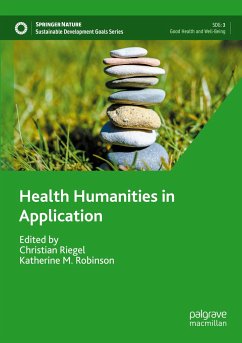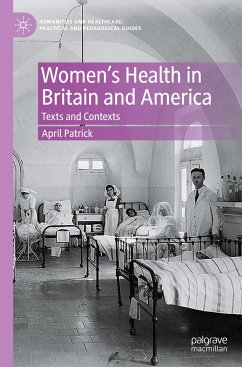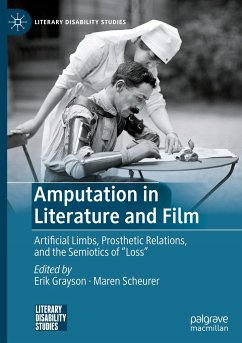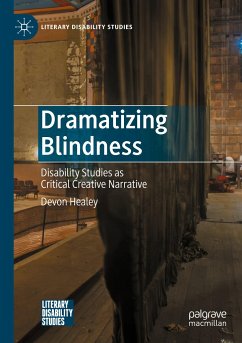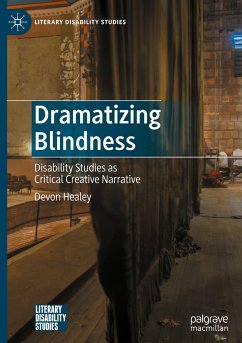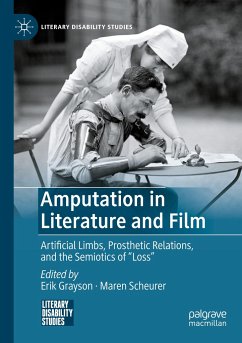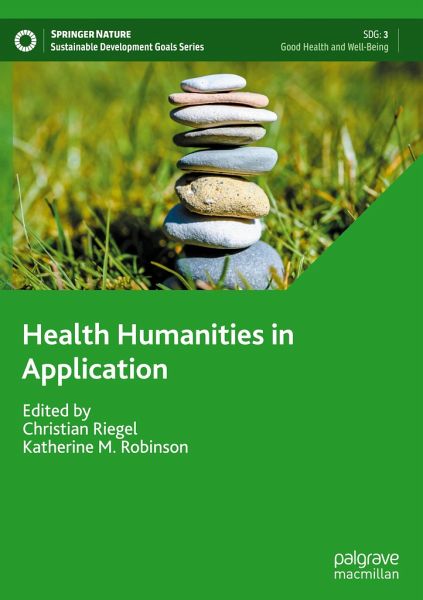
Health Humanities in Application

PAYBACK Punkte
61 °P sammeln!
This book focuses on health humanities in application. The field reflects many intellectual interests and practical applications, serving researchers, educators, students, health care practitioners, and community members wherever health and wellness and the humanities intersect. How we implement health humanities forms the core approach, and perspectives are global, including North America, Africa, Europe, and India. Emphasizing key developments in health humanities, the book's chapters examine applications, including reproductive health policy and arts based research methods, black feminist a...
This book focuses on health humanities in application. The field reflects many intellectual interests and practical applications, serving researchers, educators, students, health care practitioners, and community members wherever health and wellness and the humanities intersect. How we implement health humanities forms the core approach, and perspectives are global, including North America, Africa, Europe, and India. Emphasizing key developments in health humanities, the book's chapters examine applications, including reproductive health policy and arts based research methods, black feminist approaches to health humanities pedagogy, artistic expressions of lived experience of the coronavirus, narratives of repair and re articulation and creativity, cultural competency in physician patient communication through dance, embodied dance practice as knowing and healing, interdisciplinarity and transdisciplinarity, eye tracking, ableism and disability, rethinking expertise in disabilityjustice, disability and the Global South, coronavirus and Indian politics, visual storytelling in graphic medicine, and medical progress and racism in graphic fiction.



